Hands-on review of the brand new MB&F Legacy Machine Perpetual, the first QP of the brand (live pics, specs & price)
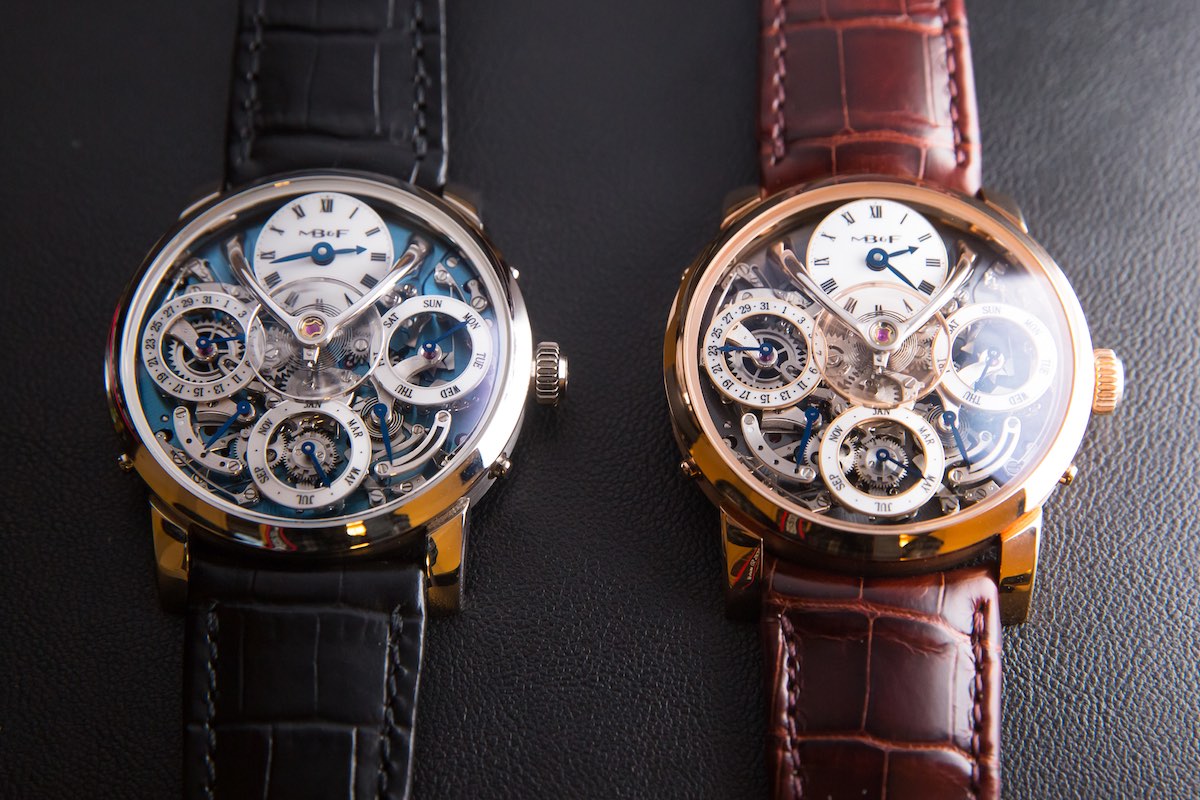
And the saga continues… After a first timepiece to launch the concept, the Legacy Machine 1, with a super-clean design and great elegance, followed by a second and more complicated watch, the Legacy Machine 2 and finally the “value proposition” of the brand, the recent Legacy Machine 101, available in two editions, including the so-cool Frost, it’s now time for MB&F to explore one of the finest complications available on the market. Without loosing the whole concept of the Legacy Machines – watches that MB&F could have manufactured 100 years ago – the brands goes into serious watchmaking, with the brand new MB&F Legacy Machine Perpetual (featuring, as you’ve probably guessed, a perpetual calendar complication).
Reminder about the Legacy Machine collection
When launching the first watch of the Legacy Machine collection – alongside the other collections of MB&F, the Horological Machines (from HM1 to HM6 and HMX) and the Music Machines – the goal of Maximilian Büsser was to imagine the watches that he could have created if he was born in 1867 instead of 1967, but still with the same spirit of innovative, bold and somehow crazy design. The result was the Legacy Machine 1, launched in 2011, a watch deeply vintage but at the same time modern, with a strange steampunk feeling, a sort of Nautilus for the wrist (the vessel from Twenty Thousand Leagues Under the Sea, not the watch from Patek Philippe). The Jules Vernes inspiration is clear. It’s like science-fiction from the late 1860s. The watch in question, the Legacy Machine 1, is inspired, clean, architectural and features a massive balance wheel flying over the dial – something that will later be the hallmark of the collection.
2 years later came the second iteration of the collection, in the name of the MB&F Legacy Machine 2, a watch inspired by some of the greatest watchmakers, Ferdinand Berthoud (a name resurrected a few weeks ago) and the contemporary Philippe Dufour, with the concept of a dual balance wheel equalized by a central differential. The watch, even more complicated and more architectural, remained close in the design and the concept, something that also goes for the little sister, the Legacy Machine 101, a sort of Value Proposition, with a more reasonable size (40mm), a more reasonable price, but still with a flying balance wheel and movement finished by Kari Voutilainen (same as the two other editions by the way). Superbly designed and finished for sure, but horologically-speaking, these watches were quite simple, displaying only the time and the power reserve (on the LM1 and LM101) – even if the mechanics are not that simple. With the Legacy Machine Perpetual, MB&F plunges into something more traditional and more technical, the perpetual calendar.
The brand new MB&F Legacy Machine Perpetual
As said, it’s one of the first attempt from MB&F to go into proper horological complications. Previously, the watches made by Max Büsser and Friends were complicated because of their display rather than displaying complications. Let me explain, with the example of the HM3. The movement is complicated not because of the indications (only minutes and hours) but because of the position of these indications. Same goes for the recent HM6, with time-indicators perpendicular to the movement – and with an extra-tourbillon. However, MB&F watches yet never came with real, traditional complications, until today with a QP on this MB&F Legacy Machine Perpetual. For this watch, Max teamed up with Northern Irish watchmaker Stephen McDonnell, ex-introductor at WOSTEP (Watchmakers of Switzerland Training and Educational Program) and now independent watchmaker.
Before explaining the MB&F Legacy Machine Perpetual in detail, we first have to understand a perpetual calendar. You may know it, but a QP takes into consideration the months with 30 or 31 days, but also the month of February with 28 days and finally the month of February during leap years, when it has 29 days – meaning that it only needs one adjustment every 100 years (if it continuously runs). Most of the perpetual calendars are modules added on the top of an existing, classical 3-hand movement – like it’s the case at Montblanc or Patek Philippe. The calendar indications are synchronized by a long lever (in French “grand levier“) running across the top of the complication and passing through the central axis of the hands. As the date changes, this long lever transmits information to the appropriate components and mechanisms by moving backwards and forwards. Then, in the traditional grand levier system, perpetual calendars assume that, by default, all months have 31 days. At the end of months with less than 31 days, the mechanism quickly skips through the next dates before arriving at the 1st of the new month. Any manipulation or adjustment of the date during changeover can result in damage to the mechanism, requiring expensive repairs by the manufacturer.
In the case of the MB&F Legacy Machine Perpetual, this becomes quite problematic, as the axis of the hour and minute hands is not in the centre and because right in the center of the watch, you have the pinion of the flying balance wheel that transmits its movement to the escapement. Thus, the use of a “grand levier” is impossible and the classical architecture has to be reimagined. The solution came in the brain of Stephen McDonnell that imagined “mechanical processor“.
Instead of using a long lever (grand levier), the MB&F Legacy Machine Perpetual relies on a patent-pending mechanical processor composed of a series of superimposed disks. Instead of assuming that every month is composed of 31 days and skipping some when needed, this mechanical processor considers that all the months are 28 days – because, logically, all months have at least 28 days – and then adds the extra days as required by each individual month. This ensures that each month has exactly the right number of days. Instead of skipping (with all the issues that it brings), the MB&F Legacy Machine Perpetual inly adds what is necessary. This mechanical processor also allows the quick setting of the leap year (instead of scrolling through up to 47 months to find the right year and month) and also allows a inbuilt safety feature that disconnects the quickset pushers during the date changeover, eliminating any risk of damage while the date is changing.
The use of this mechanism instead of the long lever system allows a specific design too. As a long lever rotates all over the dial, it prevents to have sub-dials with studs because they would block the motion of the long lever mechanism. A completely skeletonized QP is rather difficult to implement or could only be achieved by having a transparent plate that fully covers the dial over the mechanism. In the case of the MB&F Legacy Machine Perpetual, the mechanical processor permits to have a display fully opened with skeletonized sub-dials and no main dial over the indications, allowing for a complete view on the QP mechanism. The display however remains quite classical for a perpetual calendar, with an off-centered main dial at 12 (for the minutes and the hours), 3 sub-dials displaying the date, the day and the month, and two gauges, one for the leap year (at 7) and one for the power reserve (at 5).
The watch itself remains in the vein of the other Legacy Machines, with a 44mm case (actually, a large diameter but the most appropriate size for this collection) available in 18k red gold or in 950 platinum. Hands are blued and sub-dials are made from several layers of whitish lacquer that resemble old enamel or glass – again two classical features of the LM watches. The platinum edition features an electric blue main plate and sub-dials circled in silver (like the Platinum edition of the MB&F LM1) while the red gold edition features a blackened main plate, gilded circles around the sub-dials and a gilded balance wheel.
The back reveals the brand new and fully in-house movement. Technically speaking, it has nothing in common with the previous movements used in the LM1 or the LM2 but still features the same overall look and pocket watch inspiration. The movement side reveals a double barrel (that provides 72 hours of power reserve) and the hidden escapement module (next to the bridge engraved MB&F). While on the other Legacy Machines we had Kari Voutilainen as a consultant for the finishing, here we don’t have mention of his name anymore. Nevertheless, the finish of the previous editions seems respected, with angles beveled and polished by hand (including some internal angles, even if fewer than before), large Geneva stripes on the bridges or rubies inserted in gold chatons.
The front of the watch shares this same attention to details, with all the parts of the QP finished with polished chamfers and straight graining. We also find back the large arch bridge that holds the balance wheel and its superb round pillars with a mirror polishing. We wished to have more time with the watches to examine the details and to confirm the quality of the execution. However, from a quick look, it looks respectful of the rest of the MB&F production.
Final words. In fact, the MB&F Legacy Machine Perpetual gains in complexity but looses in purity. We had the same feeling after seeing the LM2 compared to the LM1. The first of the collection was a blast, a slap in the head that stacked in our heads. It was the purest, the most inspired – also because it was the first one. The effect could have been different if the LM2 was came out first. The MB&F Legacy Machine Perpetual leaves us this sort of feeling. It is impressive, complex, mastered and it brings innovative solutions to a traditional complication. The design and the execution are great, there’s not doubt about it. For those who think the LM1 is too simple or not limited enough, the MB&F Legacy Machine Perpetual will be the perfect choice and they’ll enjoy it a lot. The thing is that here, at Monochrome-Watches, we have a huge retinal persistence issue and the LM1 can’t go out of our eyes.
The MB&F Legacy Machine Perpetual will be limited to 50 pieces (25 for each edition). Price: 138,000 Swiss Francs (ex. taxes) for the 18k red gold edition and 168,000 (ex. taxes) for the platinum edition. More on www.mbandf.com.
Thank you to our friend Amr Sindi, from The Horophile, for sharing with us these photos of the new MB&F Legacy Machine Perpetual. More of his work on his Instagram account @thehorophile.

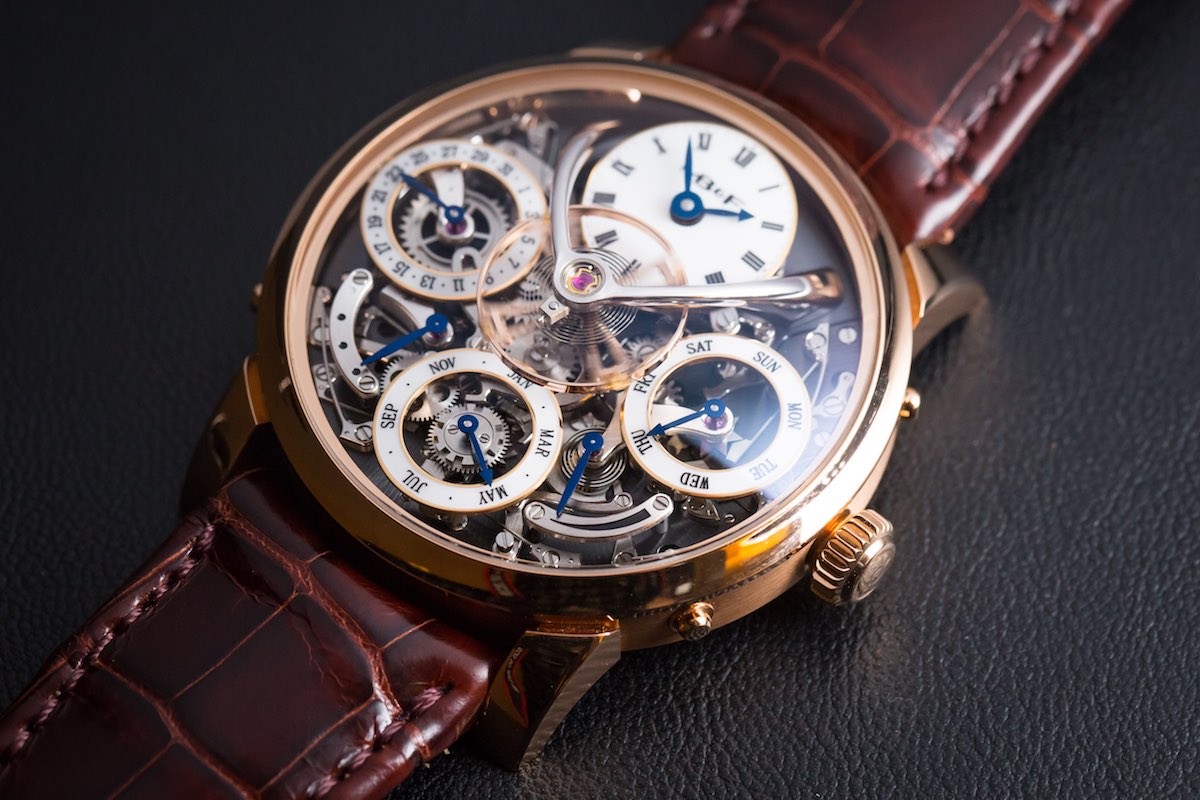
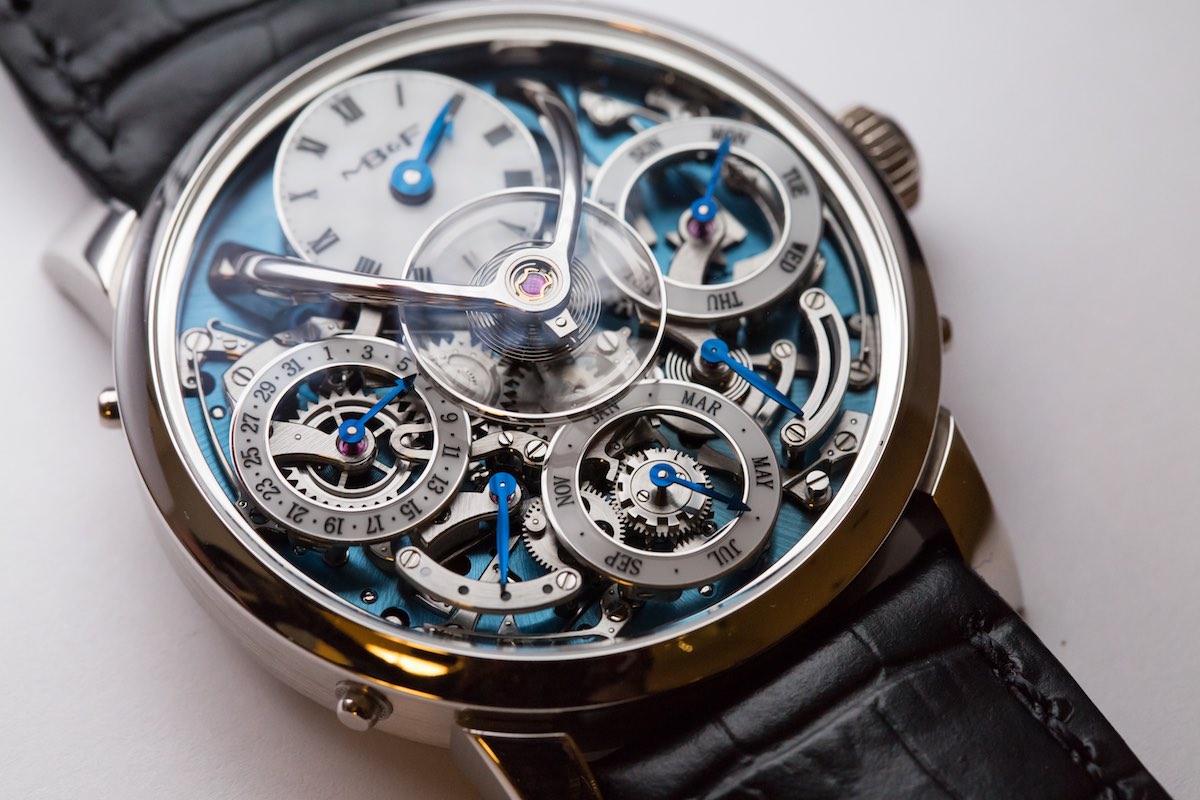
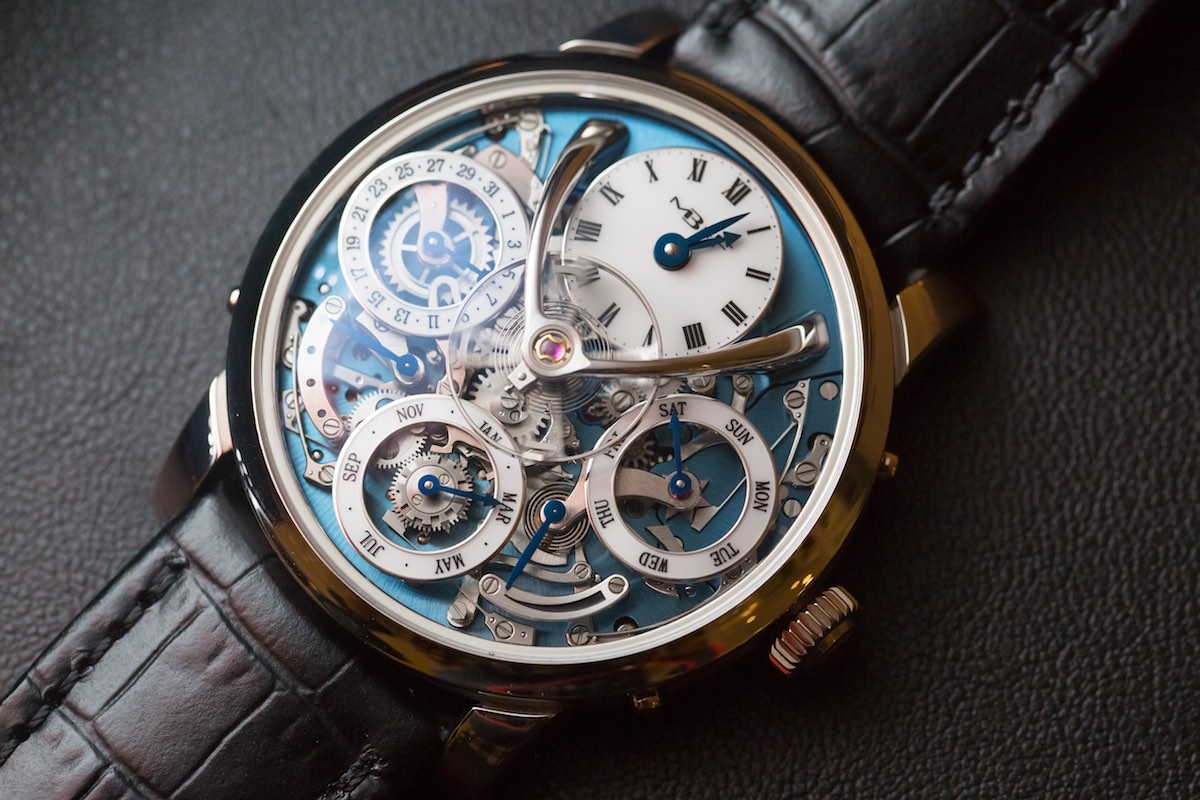
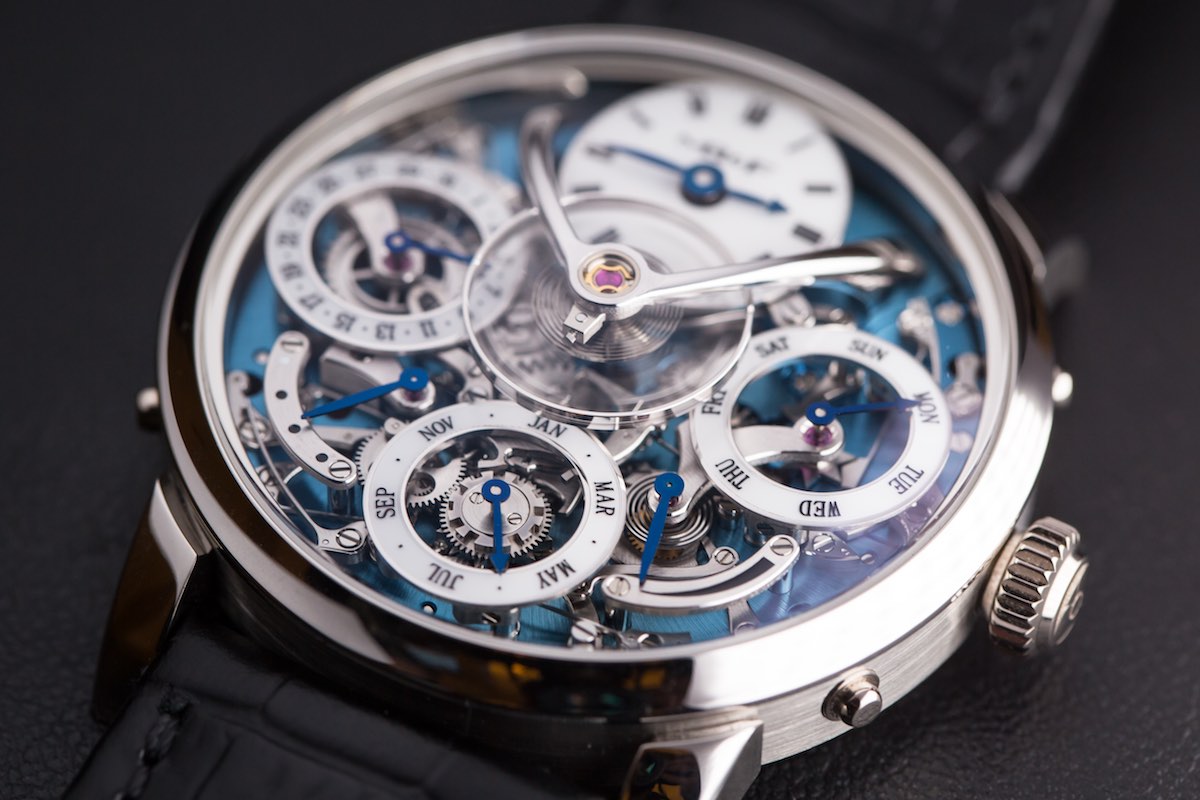
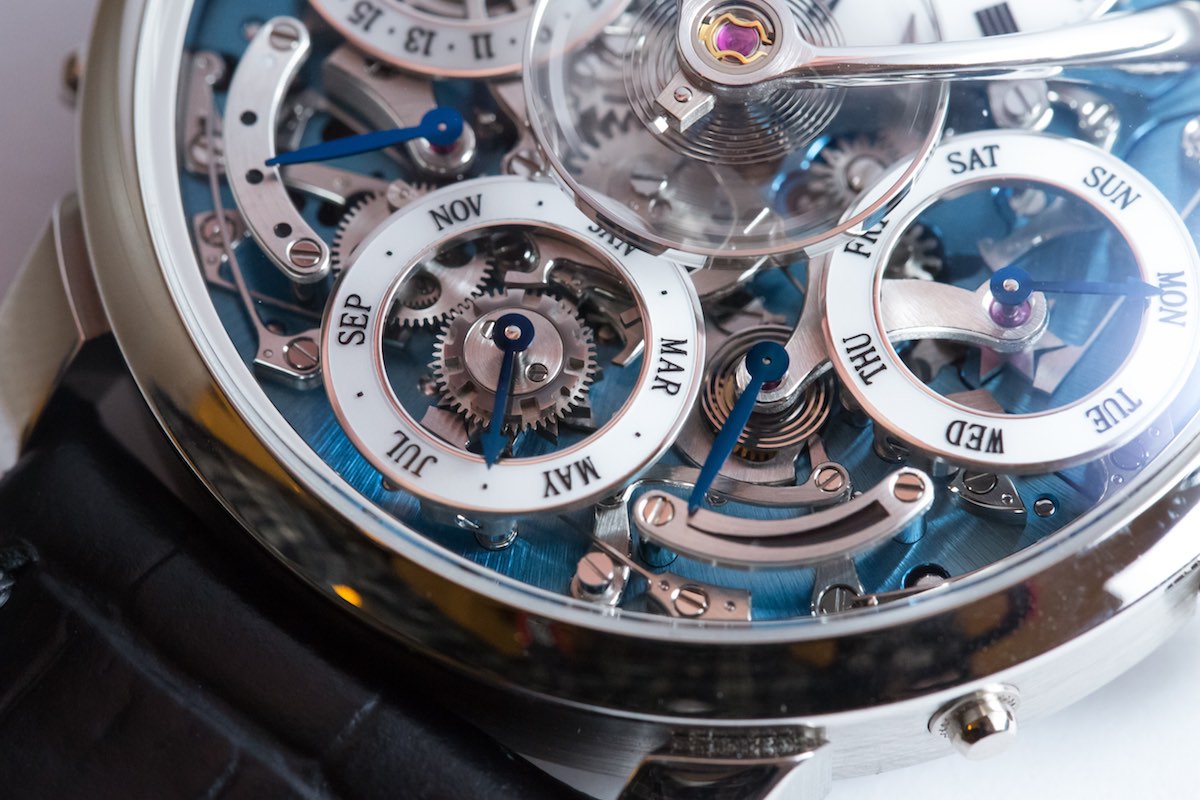

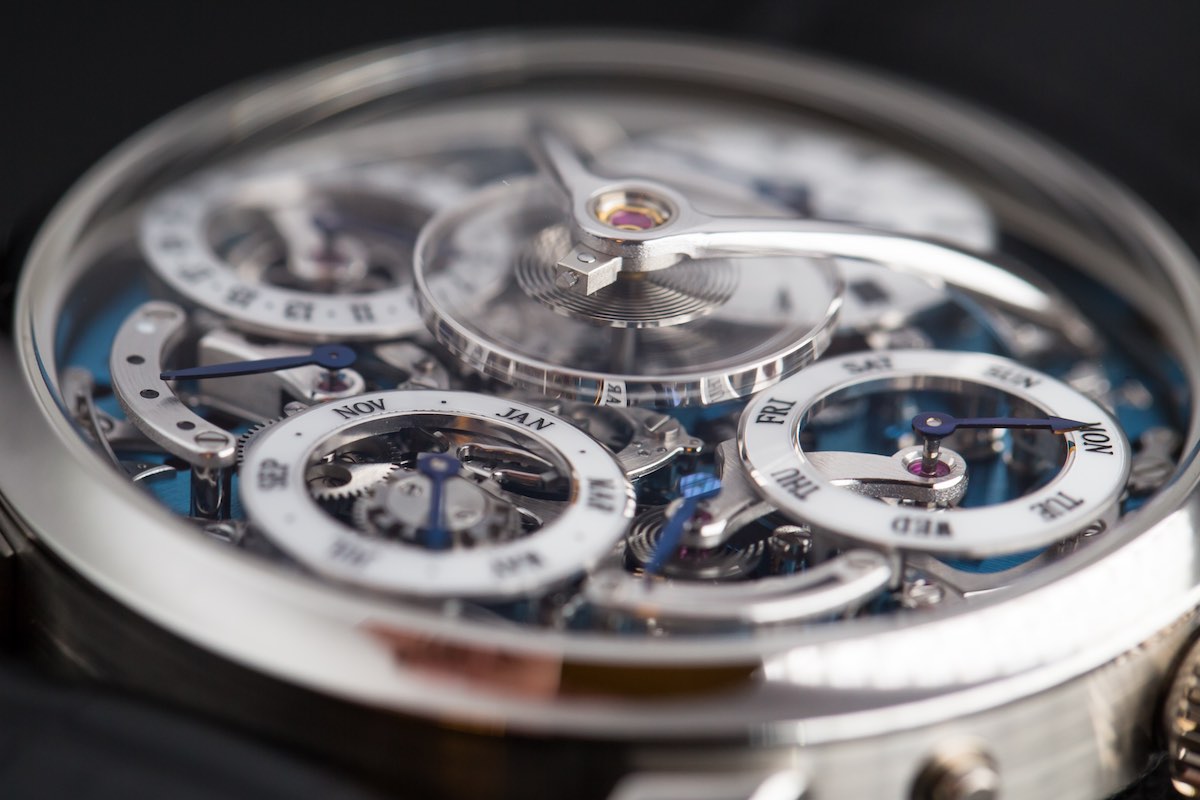
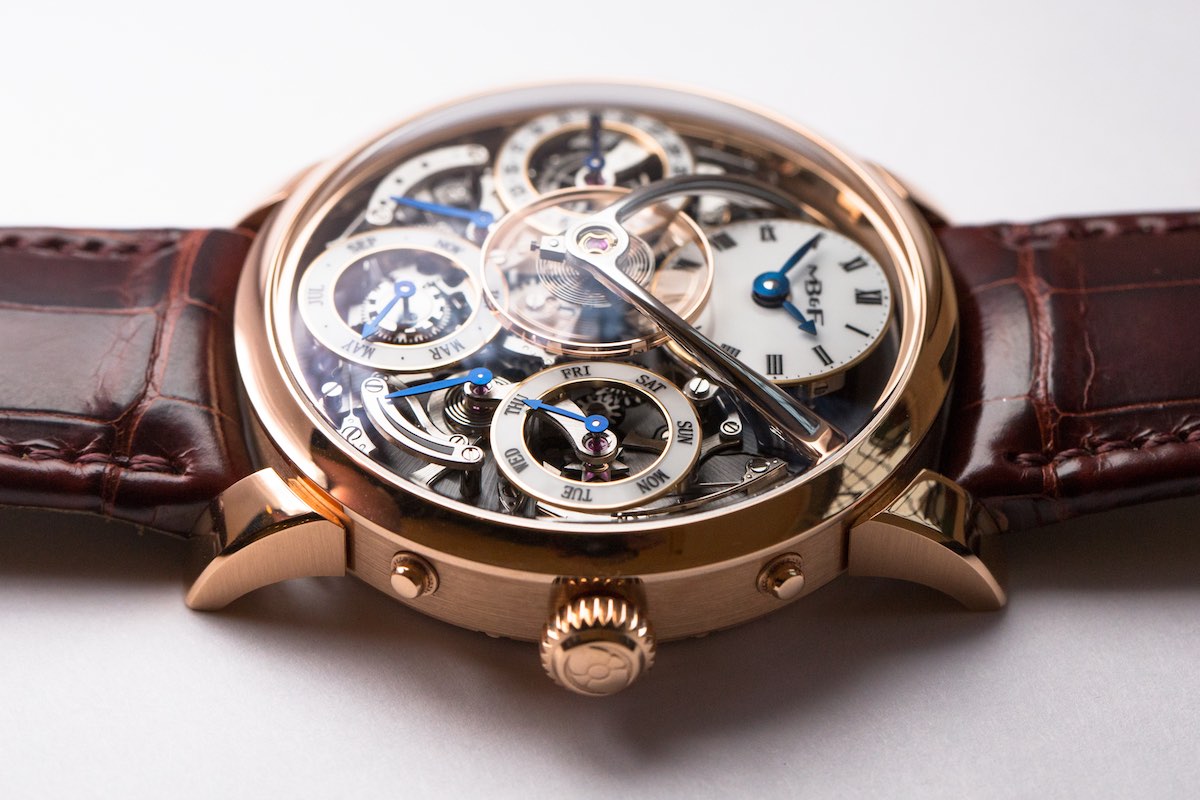

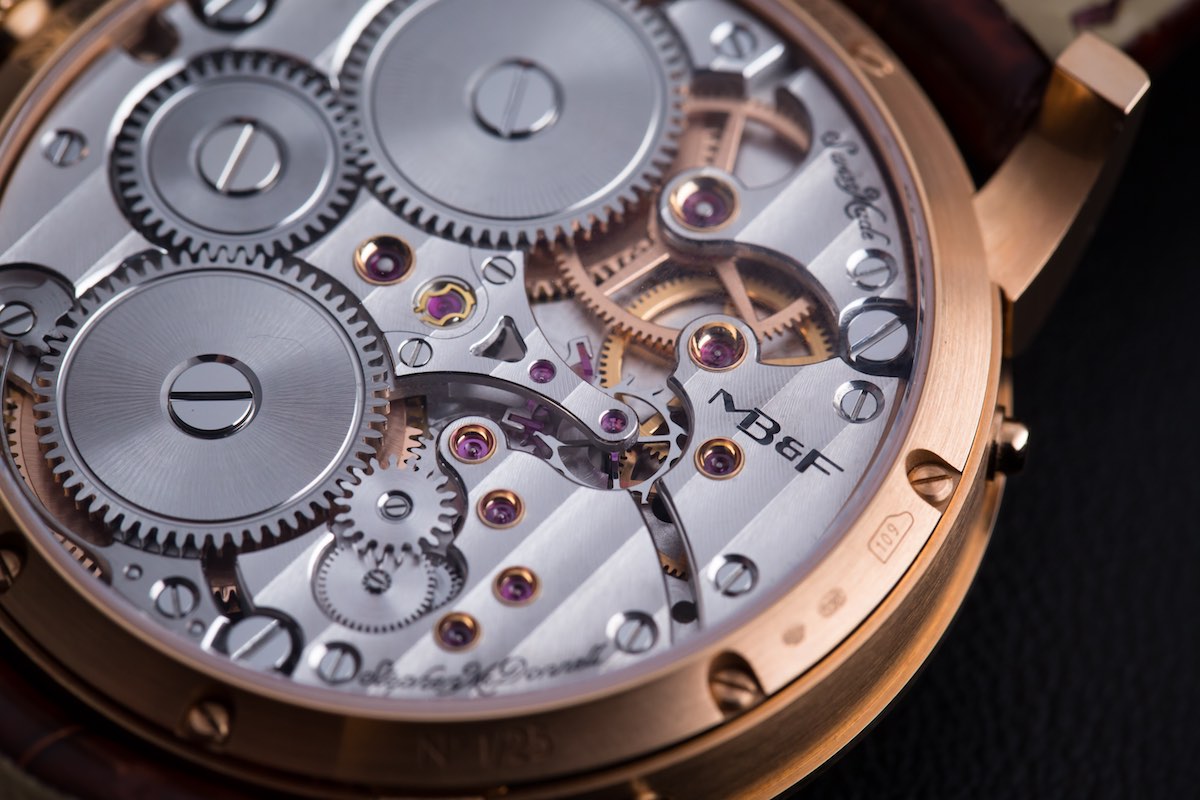
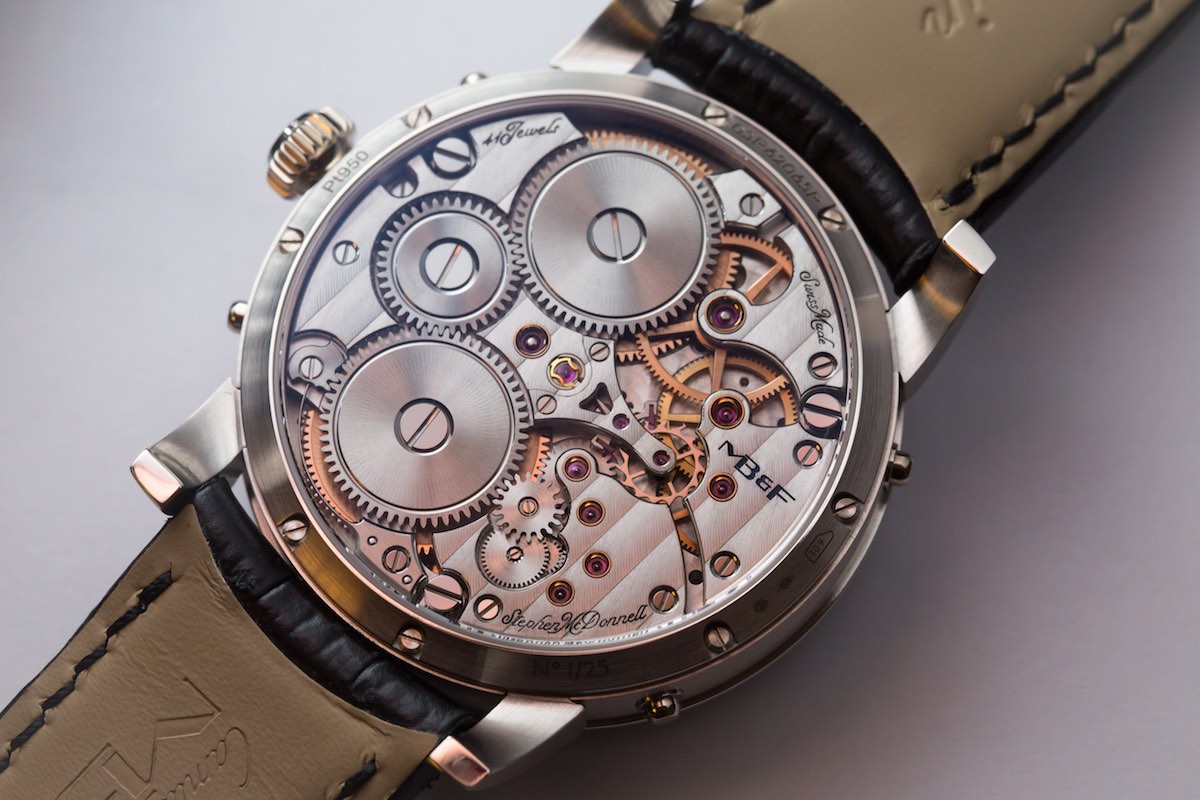

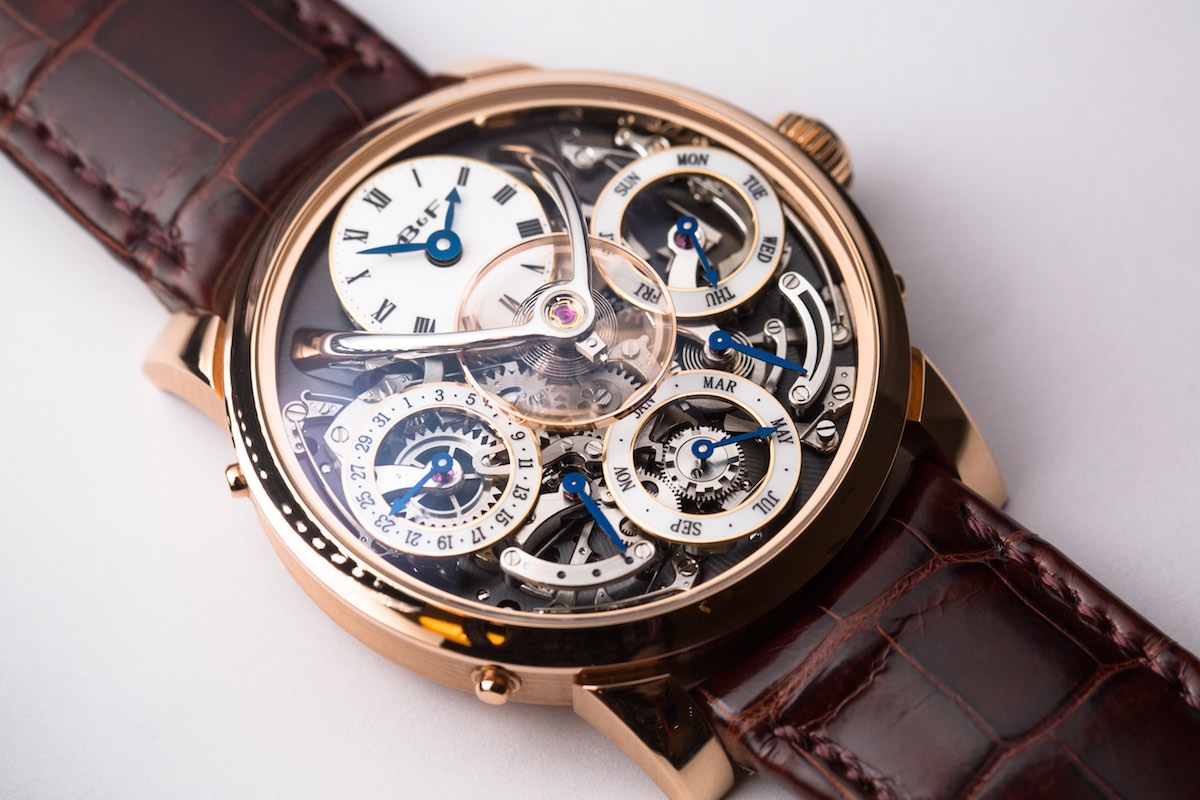

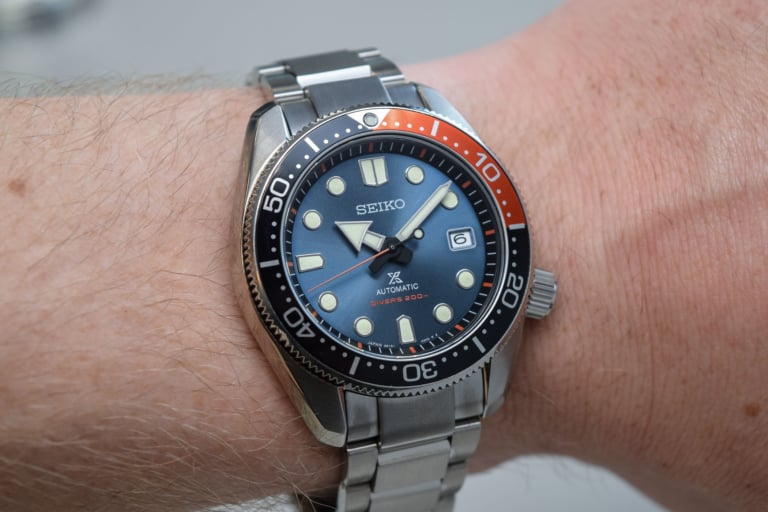
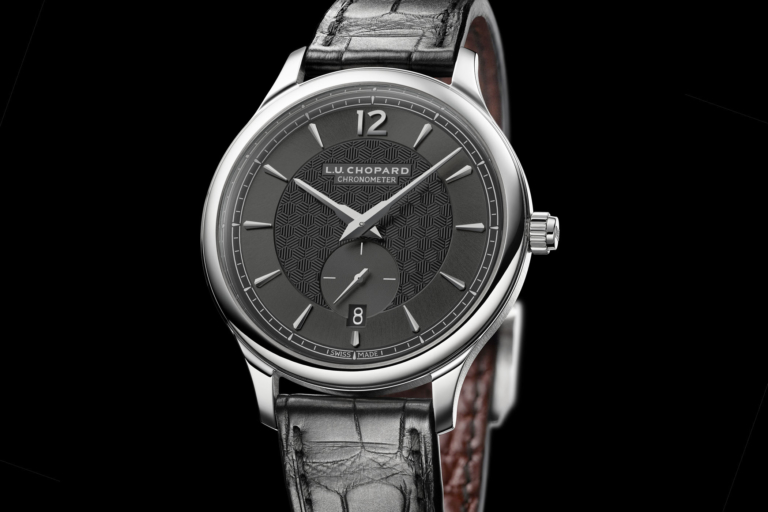
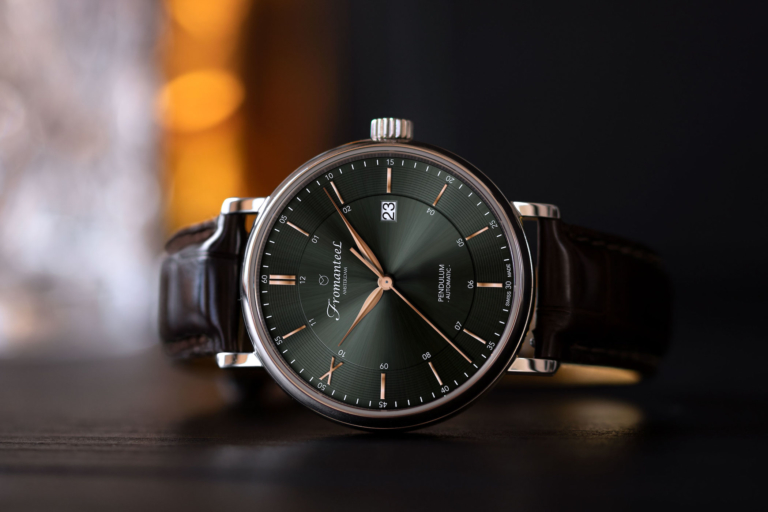
1 response
Great review as usual. Would like to see lume pictures & side profile in reviews although not relevant here. I like that you focus on indie brands ????????
Congrats with your 10 year anniversary. Too bad I always forget the give aways ????